A New Type Of Conversation
When I started blogging in January 2009, a number of my friends were non-plussed, to say the least. Some found it difficult to understand why I’d do all that work for free. Others worried it would siphon off good ideas that might otherwise have given rise to proper essays or articles. And some, more deeply, were concerned it would distract me from writing fiction.
I’d be lying if I said they weren’t things that worried me a bit as well. Making a living as a writer is tough enough as it is without taking on extra work you don’t get paid for. Nor, when it comes down to it, am I so blessed with ideas I can afford to fritter them away. And, perhaps most urgently, between small children and work, finding the vistas of time fiction demands is an ongoing challenge.
At the time I usually claimed the blog was an experiment, something I wanted to try for a while and see how it went. And to an extent that was true. Certainly I didn’t have clear goals, or even criteria for success or failure. There was no deadline, no word count I needed to reach. What I wanted to do was try something new, and see how it went.
But by the same token it certainly wasn’t an experiment without purpose. Part of that purpose was self-interested: whether we eventually find a way to monetise online publishing or not, it’s quite clear not just that the future of writing lies online, but that the process of writing for the online space is different from the process of writing for the print publications I’ve been writing for over the last decade and a half. Setting up a blog was a way of teaching myself how to write for that space.
It was also about a sense that I was missing out. For some time it had been clear to me a lot of the most interesting – and certainly the most exciting and engaged – writing was happening online. I wasn’t quite sure what I had to contribute to that conversation, but I was clear about one thing, which was that I wanted to be a part of it.
But it was about something deeper as well. For quite some time I’d been feeling a growing disconnect between the sorts of things I wanted to write and the publications I write for. Part of that was about the fact that the things I was really excited by weren’t things the newspapers and magazines I write for tend to run stories about. My editors wanted book reviews, but I wanted to write about Battlestar Galactica, or the Jack Kirby and Steve Ditko comics I’d loved as a teenager. I understood their reasons, but it was frustrating, not least because I felt like I wasn’t writing things I should be writing. And then, one day, it occurred to me I was getting the whole thing backwards: if I wanted to write about Battlestar Galactica or The Wire I could do it anyway, and just publish it online. I wouldn’t get paid, and maybe nobody would read it, but at least I’d be writing what I wanted to be writing again.
Of course by deciding to set up online I was simply becoming part of a much larger movement. In the decade or so since the first web diaries, or web logs began to appear, blogging has become a phenomenon. Figures are difficult to come by, but two years ago the blog indexing service, Technorati, estimated there were more than 100 million blogs in existence, a number that has presumably continued to grow apace ever since.
People often dismiss these figures by pointing to the number of blogs dedicated to cataloguing the cute things their creators’ cats did on the weekend, or obsessing over Robert Pattinson and Justin Bieber. But this is to miss the point, and not just because it requires one to wilfully ignore the incredibly high standard of analysis, commentary and original writing that is to be found on sites as various as The Elegant Variation, Boing Boing and (rather closer to home) Larvatus Prodeo, to say nothing of more collaborative and professional ventures like The Millions, Talking Points Memo and Overland and Meanjin’s blogs.
Because, despite the views of its detractors, blogging is not simply vanity publishing run amok. Instead it is part of a much larger transformation of the way content is created and distributed. Liberated by technologies that allow anyone with a computer and an internet connection to publish whatever they like for free and make it available to an audience of billions instantaneously people around the world are exploring the possibilities of the medium by publishing a dizzying range of material, from poetry and fiction to satire, memoir, criticism and everything in between. And in so doing they are helping to underline the way technology has disrupted the economic and cultural assumptions that control public debate. It’s no longer necessary to write for a major newspaper to be a significant contributor to political analysis, as the success of writers such as Tim Dunlop and Bernard Keane demonstrates, nor to build a reputation as a critic, as The Art Life’s Andrew Frost or even theatre critic Alison Croggon’s online venture Theatre Notes shows. And while it takes a bit of savvy, as the runaway success of former Dolly Editor Mia Freedman’s Mama Mia demonstrates, it’s possible to build highly successful platforms focussed on particular issues or interests, or appeal to specific audiences.
For writers this diversification is both exciting and a little unsettling. But that hasn’t prevented many from exploring its possibilities. Some, like Neil Gaiman, have embraced the medium as a way of building a closer relationship with their fan base. Others, like Cory Doctorow, have leveraged it to forge careers as activists and commentators alongside their more conventional writing.
Closer to home a number of Australian writers have also developed thriving online presences. At How to Shuck an Oyster, for instance, the Miles Franklin-shortlisted Charlotte Wood writes delightfully and delightedly about food and cooking, while at Cheeseburger Gothic John Birmingham has perfected a machine-gun version of the form that consistently delights his ever-growing fan base. Similarly Margo Lanagan, and Justine Larbalestier run successful blogs (Larbalestier’s regularly topping lists of the most popular Australian litblogs). And, under her online nom de plume, Pavlov’s Cat, the writer and critic Kerryn Goldsworthy hosts not one but three two blogs – Still Life With Cat and Read, Think, Write – each dedicated to different subsets of her many interests.
My first weeks and months online were alternately exhilarating and chastening. With little sense of who would be visiting, or how they’d find me I watched my site’s stats nervously. Simultaneously I struggled to find a tone that would work in the strangely intimate online world, and to work out where to draw the line between my online persona and my real life.
But simultaneously I found myself genuinely enjoying the process of writing for the first time in a long while. Partly that was about the freedom to write what I wanted. In a matter of weeks I tried my hand at pieces about television, music, film, even politics, each of which threw up new challenges, and – excitingly – suggested new possibilities.
But it was also about the freedom of the form itself. There’s a rush and a rawness to the process of blogging that’s genuinely exciting. Partly that’s about knowing you don’t have to get it right, that there’s no-one you’re letting down if the piece doesn’t come together. But it’s also about being able to chase ideas where they lead. You might begin talking about Lost, but if that leads you into a conversation about Silver Age Comics, or the nature of endings, that’s okay.
This allusiveness is partly a function of the form, its capacity to blend words and images, to link to other sites and other articles, all of which push online writing towards an openness and gregariousness that is difficult to sustain in print media. But it’s also symptomatic of the way blogging alters the balance between writer and reader. In print media, writers broadcast to a passive audience. Although institutions such as letters to the editor have always allowed a low level of interactivity, the communication is basically one way.
By contrast, what matters on a blog is the conversation. The writer’s contribution is only a starting point, designed to stimulate debate. Indeed in a very real sense a blog is only as good as the community it creates, because it’s their contribution, their willingness to be engaged and participate, that allows the form to realise its true potential.
In many ways this has been the aspect of blogging that has been the greatest joy. I’ve been consistently amazed by the generosity and openness of the many, many people who choose to contribute, and by the intelligence and care they bring to their responses. Likewise my own thinking on any number of subjects has been challenged and enriched by their responses. Nor have these relationships been confined to the blog itself: conversations online have developed into friendships offline, many with people interstate or overseas I might not otherwise have come into contact with.
This emphasis upon equality and conversation is a reflection of the blog’s origin in forms like the journal and the diary. Like both, blogging is a process that is at once personal and public, performative and reflective. And, perhaps not coincidentally, much of the best blog writing often reads like a combination of diary and commonplace book, offering something closer to a portrait of the writer’s mind at work than a finished product.
But it also demands a preparedness to allow others space to contribute, and this isn’t always easy, not least because it demands you unlearn old habits. Asking people for their views at the end of a post isn’t enough, you need to make space in the post itself, a place others can step in and contribute. Sometimes this can be as deliberate as leaving something out, or leaving a counter-argument implicit but unstated, but in many ways it’s about learning to harness the intimacy of the form and speak directly and conversationally.
Eighteen months later, my blog is no longer an experiment. By fits and starts it’s taken on a life of its own, developing a community of readers and a reputation of sorts. It still doesn’t make me any money, and it absorbs a surprising amount of my energy and attention, but simultaneously it’s allowed me to explore ideas and interests I would never otherwise have been able to explore, and made me part of a community of readers and writers whose ideas enrich my ideas and my writing in ways I could never have predicted.
But it isn’t just about the relationships or the conversation. Blogging has made me feel as if I’m part of something. To call it a movement is probably going a bit far, but it wouldn’t be entirely incorrect. Because like Twitter, blogging is only one facet of a much more profound transformation of the way we think about reading and writing that is being driven by technology, a process of transformation that isn’t just allowing a host of exciting new writers to emerge, but is actually giving birth to a host of new literary forms, and changing many existing ones, driving a blurring of the boundaries between fiction and non-fiction, genre and the literary, even the printed word and more visual forms such as the graphic novel.
And finally – and perhaps most importantly – it’s changed me as a writer. Partly this is about small things, such as the way blogging forces you to engage with your audience in a quite direct way, or the sense that somehow the creation of an online persona has allowed me to bring the many and oddly disparate bits of my writing together into something that at least resembles a coherent whole.
But it’s also about something deeper. I’ve always believed good writing puts its author at risk in some way. That risk might simply be that of expressing an opinion that might be incorrect, but usually it’s more than that. In fiction the risk is obvious, and relates to exposure of aspects of the self that are usually kept hidden, but it’s there in good non-fiction and even good reviewing as well. To really engage with an idea or a book or even a television show it’s necessary to give up the protection of assuming you’re right and test your ideas and yourself by putting your assumptions on the line.
For better or worse I had been handling that risk by assuming stricter and stricter control over what and how I was writing. But online that just isn’t possible, and so, little by little, I learned to cede control again, to stop worrying so much, and just be myself.
That process has had various effects. Perhaps the most obvious has been finding a version of myself I can work with online which feels real. But it has also fed back into my other writing. Some of those effects have been positive – I’ve become more forthright in my views as a reviewer, for instance; others less so – after the freedom of working in the online space the relatively structured nature of the book review and the essay seems oddly restrictive. Yet it’s also had odd, and unanticipated effects on my life as a novelist, freeing me up and making me prepared to trust my instincts in a way I haven’t for a long, long time.
In a way it’s this last that’s been the most unexpected. But it’s also been the most liberating. Because somehow learning to let go has allowed me to find my way back to the sense of discovery and possibility that led me to writing in the first place. Whether that’s made me a better writer is debatable, what isn’t is the fact it’s made me a much happier one.
This article originally appeared in the August 2010 issue of Australian Author, Wired for Words: Writers in the Digital Era.



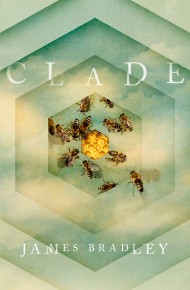

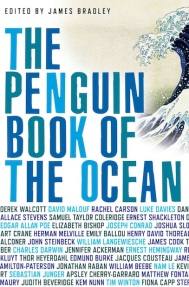
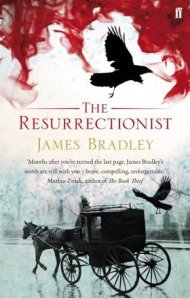
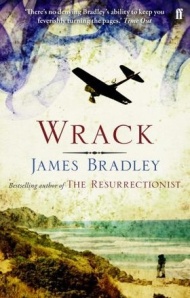
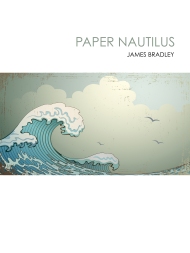
Thanks James! This article has confirmed for me the validity, necessity, legitimacy and possibilities of blogging. I’ve only just started writing again after years of scribbling in journals and planning to write a novel when the kids grow up, when I get more time, when I retire from teaching, etc.
My husband who’s a computer technician encouraged me to blog a few years ago and I baulked at the idea, deeming it too risky. Now, three months later I’m loving the freedom it gives me to share, experiment and showcase my work in a supportive environment. I can post my poetry, short stories, thoughts and book reviews which enrich and add to the novel I’m working on.
It’s rewarding and fulfilling and allows me to connect directly with my audience and get instant feedback. What more could a writer ask for? Oh yeah, payment. But that’s not why we do it, right?
Well not totally. The opportunity to spend more time on writing is a luxury not all can afford.
Thanks for sharing your thoughts and your writing. I look forward to reading more.
Melpomene
For ‘creative entrepreneurs’, the main reason for blogging is to brand oneself, build a following, and ultimately make more money. Justine Musk explains this on her blog Tribal Writer, and I’ve discussed her ideas on my site. After reading her post, I tried to work out why I blog. I’ve always been sceptical of marketing and branding, and I’m uneasy about what self-promotion does to one. Like an Amway rep, do I have another motive when I engage with people – for example, by commenting on their posts?
Then I read your essay, and your description of the joys of blogging and the ways it had changed you as a writer gave me a little more balance. Although I’m a novice, I have already had some of those experiences, and your other comments crystallised my hopes for the future of my blog. Thank you.
Do you have any thoughts on the marketing side of blogging?
I think it’s pretty clear some people leverage blogs really successfully as marketing and brand platforms, but I’ve never seen mine in those terms. I suspect I’m in a relatively unusual position, since I came to blogging as an established writer, so it’s easy for me to treat the blog as an extension of my other work, and not worry too much about how effective it is, but I think the honest truth is I like it because of the freedom and the conversation, and really trying to push the marketing side would take that freedom away and turn it into something I wouldn’t feel comfortable with.
Blogging has changed my life as a writer. It is hard to crack the publishing market and so my writing was confined to uni essays and the odd short story published. But when I started blogging, I started writing with other people in mind – everyday. My whole style of writing changed from introspective navel gazing to wanting to communicate something to the rest of the human race – no middle man. If it’s crap, no one reads it. If it’s good, I get feedback!
I would like to propose a blogging segment for next year’s writers festival in my home town. So far I’ve got a few raised eyebrows. We’ll see …
A couple of years ago I seriously considered starting a blog to share my feelings about mountains, nature and spirituality, but at that time I concluded that with my work, I wouldn’t have time to do it properly.
Now that I’ve just retired, I have more time at my disposal (but find other projects filling the vacuum). Actual income from writing would be very helpful, but as you point out, blogs can help to develop a following and reputation, as well as getting the creative juices flowing. It’s worth giving it some more thought.